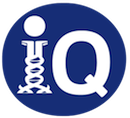- Evaluate your therapeutic or formulation excipients for the potential to cause hemagglutination, the aggregation of red blood cells, with an in vitro hemagglutination assay
- Personalized experimental design with whole blood obtained from your species of interest, with appropriate positive and negative controls applied in addition to your therapeutic
- Whole blood procured from local IRB-approved blood centers and used within four (4) hours of collection
- The degree of hemagglutination is independently scored by at least two iQ researchers using an iQ-specific hemagglutination scale
- All assays are performed with high-quality reagents and strict controls by experienced immunologists
- Data are provided in appropriate formats, including PowerPoint slides, Excel files, and/or direct data files (e.g., GraphPad Prism)
Service Overview
About the Hemagglutination Assay
Hemagglutination, the aggregation of red blood cells, can occur in response to the presence of viral particles or certain therapeutics. For example, hemagglutination resulting from therapeutic intervention with drugs that target markers expressed on red blood cells (RBCs) can increase the risk for patients to develop severe off-target effects, such as anemia. The hemagglutination assay at iQ Biosciences can help researchers determine if treatment with a therapeutic or formulation excipient of interest results in hemagglutination in vitro and poses a potential risk for clinical application.
The hemagglutination assay is performed by first obtaining fresh blood from at least three healthy donors. The blood is then plated and treated with the therapeutic of interest or appropriate positive and negative controls (species-specific hemagglutination-inducing antibody or PBS/vehicle, respectively) at a range of concentrations to determine any dose-responsive effects. After an incubation period, each sample is scored using a hemagglutination scale developed by iQ Biosciences. Treatment- and donor-specific scoring data will be provided.
